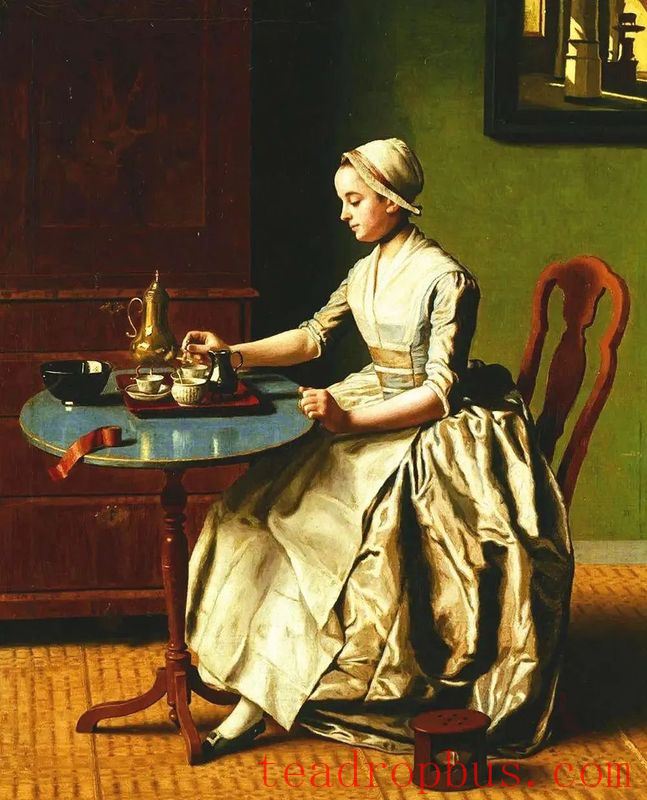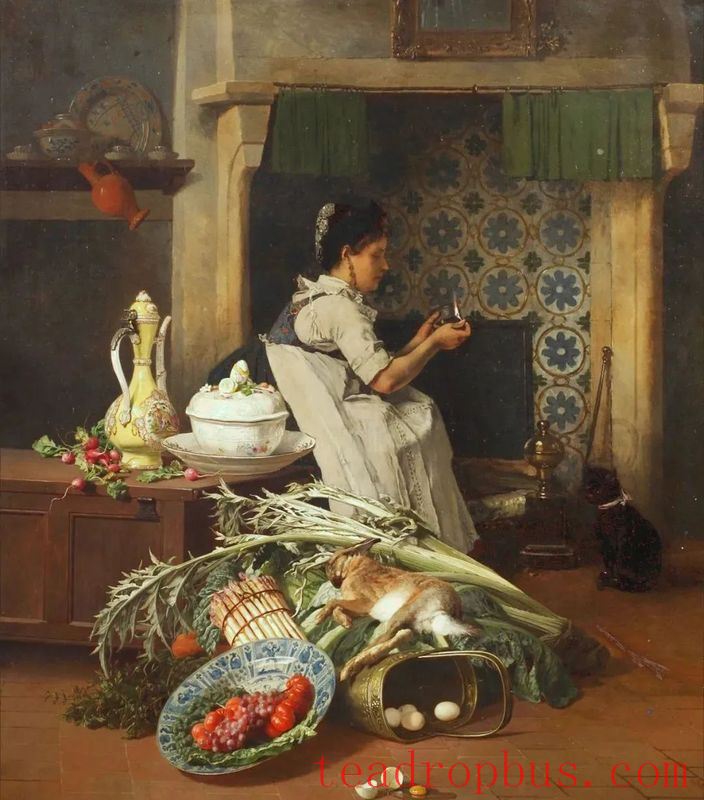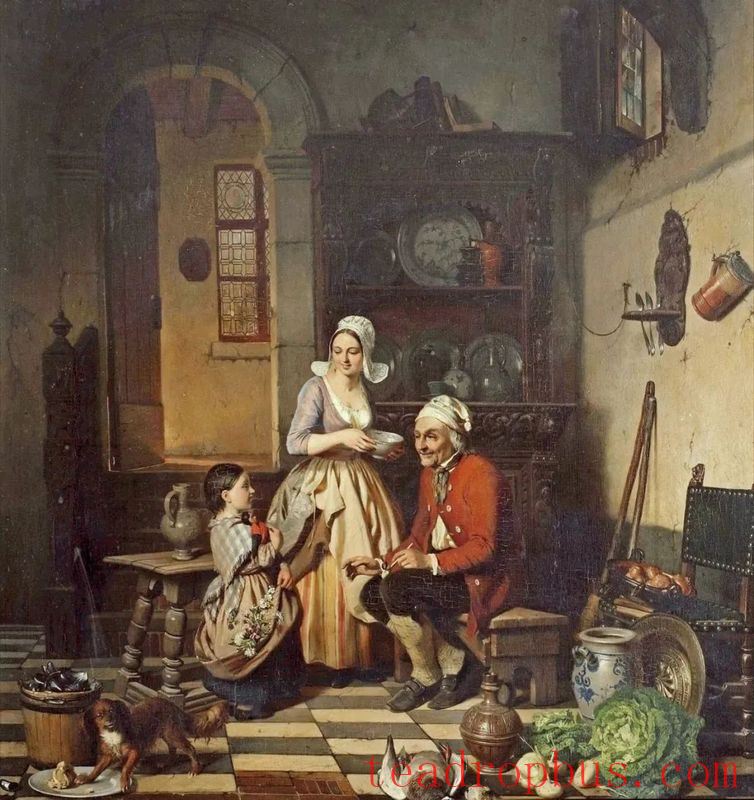Tea is an essential item in every household, used for entertaining guests, daily consumption, and visiting friends and relatives.
Tea is a valuable resource that can be used not only as a beverage or culinary ingredient but also to assist with various aspects of daily life. Keeping some tea at home can help you make the most of its many uses.

Health benefits
Using tea-infused water to wash your hair will make it black and shiny. After washing your hair with shampoo, rinse it with tea water to remove excess residue without harming your hair or skin.
After washing your face at night, Brew a Cup of tea and apply the tea water to your face, gently patting it dry, or place a cotton cloth soaked in tea water on your face, then wash with clean water. The tea color will naturally disappear overnight, helping to remove blemishes and whiten your skin.
Squeeze out the brewed tea leaves and place them in a muslin bag. Close your eyes and place the tea bag over your eyes for 10-15 minutes. This can relieve eye fatigue, improve dark circles, and treat eye inflammation.
Tea can be used for hair care; after washing your hair, apply fine tea powder to your scalp and gently massage it once a day. Alternatively, apply tea water to your head, massage for one minute, then rinse. This can prevent hair loss and remove dandruff.
Place 20-30 grams of tea in a small cloth bag and soak it in the bathtub for a bath. This can prevent skin diseases, remove old keratinized skin, making the skin smooth, and also eliminate body odor, leaving a fresh tea scent.
Tea contains a large amount of Tannic acid, which has a strong antibacterial effect. For those suffering from athlete's foot, soaking feet in concentrated tea water each night will eventually heal the condition without treatment.
Tea has a strong astringent effect. Keeping tea in your mouth can eliminate bad breath. Rinsing your mouth with strong tea has the same effect.

Kitchen Uses
When stewing beef, wrap a bag of tea in clean cheesecloth, tie it tightly, and place it in the pot with the beef. This will cook the beef quickly and tenderly.
When cutting fish, the knife will be covered in a fishy smell that persists even after washing with detergent. Boil some tea leaves in a pot, then place the knife in the boiling water for a while to remove the fishy smell.
Over time, kitchen utensils accumulate stubborn oil stains that are difficult to clean. Wipe the utensils repeatedly with damp tea leaves, then rinse with water to remove stubborn grease.
If laundry detergent cannot completely remove oil stains from clothing, rub the stained area with leftover tea leaves to remove the stain.
Spicy hotpot can be too intense, and drinking water may not alleviate the discomfort. Chewing some tea can easily alleviate the spiciness.

Removing Odors
Tea has some absorbency and can absorb odors. Wrap a small amount of tea in a piece of cotton and place it in the refrigerator or new wardrobe as a deodorizer for noticeable results.
New wooden furniture often has a pungent paint smell. Wipe the furniture several times with a cleaning cloth dipped in tea water to eliminate the odor. If there is an unpleasant smell in the bathroom, placing used tea in the bathroom can effectively repel insects and eliminate odors.
To get rid of the smell of raw onions and garlic, chew some leftover tea leaves for a while to eliminate the odor.

Household Uses
Instead of discarding used tea, spread it on a wooden board to dry. Accumulate it and use it as a pillow filler. It is said that a tea pillow can refresh the mind and enhance thinking abilities.
Dry used tea and burn it during summer evenings to repel mosquitoes, just like incense, but without any harm to humans.
Washing silk clothing with water infused with used tea leaves will preserve the original color and luster. This also works for nylon clothing.
Use leftover tea to clean mirrors, glass windows, furniture, dirty leather shoes, and dark clothes. Dry tea leaves can be sprinkled on carpets or rugs before sweeping, as they absorb dust and moisture.
Tea water can be used to write hidden messages, which can be revealed using specific methods, providing a concealment function.

New Health Products
Due to rapid advancements in science and technology, significant breakthroughs in the theoretical foundations and techniques supporting tea science have led to the development of various new health products derived from tea functional components that have permeated every corner of our lives.
For example, recent foreign research and development of mobile phone radiation protection stickers incorporated catechins, enhancing their anti-radiation effects.
For instance, chewing gum containing Green Tea polyphenols effectively eliminates free radicals and freshens breath, enjoying great consumer popularity.
Moreover, dietary supplements based on flavonoids from yellow tea have remarkable effects and no side effects, becoming one of the mainstream natural cholesterol-lowering products internationally.
Additionally, green tea perfumes with various fragrances have a fresh and elegant aroma, favored by young and fashionable consumers.
Also, tea wine combines the fragrance of tea with the aroma of wine, regulating physiological metabolism and promoting digestion, widely appreciated by the public.

The functional components of tea have become important subjects of research in non-tea disciplines such as biology, medicine, pharmacology, nutrition, and natural product chemistry both domestically and abroad. Beyond being a beverage, tea plays a crucial role in maintaining human health and enriching daily life.